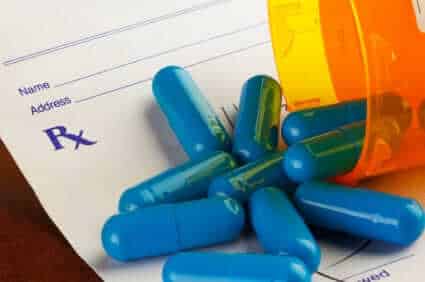
Do you take prescription drugs? Are you aware that you could be arrested for driving under the influence of your prescription drugs even when taken as directed? As reported by NBC Latino –
DUI — driving under the influence — or DWI — driving while intoxicated — typically suggests driving under the influence of alcohol. Yet alcohol is not the only substance that can impair driving. Actually, most driving under the influence laws are written to include any drug which can impair your ability to operate a motor vehicle safely. This means you could potentially be found guilty of a DUI offense even if you are taking prescription or over-the-counter medications.
A 2010 survey by the Substance Abuse and Mental Health Science Administration found that almost 10 million Americans drove while under the influence of some type of medication and/or drug. A National Highway Traffic Safety Administration Study in 2009 showed that one-fifth of those killed in car crashes in 2009 tested positive for some form of medication or drug not counting alcohol. The Centers for Disease Control report that 18 percent of motor vehicle deaths are related to drugs.
This means we have to be very mindful that certain medications, whether over-the-counter, prescription or illicit, can be detrimental to driving safely. The reasons are easy—some drugs have side effects that cause sleepiness, blurred vision, dizziness, slowed movements, difficulty focusing, fainting or jitteriness.
State statutes differ on this issue, but 15 states have laws that consider prescription or over-the-counter medications to be viewed like alcohol as part of a DUI. A few states even have a zero-tolerance policy — if they find any evidence of any medication in your body that could impair driving, you will be found guilty of a DUI.
Here are 8 common medication types that could impair your driving.
- Antidepressants — not all antidepressants are problematic, but the ones that cause sedation, typically older medications like trazodone or a class of drugs known as tricyclic antidepressants, may interfere with your ability to safely drive a car.
- Pain Medications — especially those that contain opioids or opioid-like substances like codeine, oxycodone, vicodin, morphine, tramadol, (ultram®) are a problem for driving.
- Tranquilizers — anti-anxiety drugs, especially those that belong to a class of medications called benzodiazepines—diazepam (Valium®), alprazolam ( Xanax®), impair driving. A typical dose of Valium—10 mg is equivalent to a 0.10 blood alcohol level in terms of function—most states cite the legal limit for driving drunk as 0.08 blood alcohol level.
- Diet Pills — the ones that have stimulants in them can be very problematic; they can make you feel jittery, and you can become too impulsive and make bad decisions on the road.
- Anti-seizure Drugs — phenobarbital, lorazepam (Ativan®), clobazam (Onfi®), clonazepam ( Klonopin®) and others like them may cause sedation and slow your reflexes.
- Anti-allergy Medications — especially ones that contain certain antihistamines like diphenhydramine (Benadryl®) or certain decongestants could cause sleepiness.
- Medical Marijuana — several states have now approved medical marijuana. Cannabis or marijuana is a big no-no for driving as it dulls your senses and can lead to problems if you decide to drive.
- Sleep Medications – diphenhydramine (Benadryl), ambien (Zolpidem®), lunesta- (ezopiclone®) that help you fall asleep will affect your driving.
The last thing you want is to hurt anyone because of your driving. So just remember, DUI does not just mean alcohol, it could mean your medicine cabinet as well.
Talk to your doctor or pharmacist and read the warning labels on the medication. Typically many drug store chains place a colored warning sticker that says “Do not drive or operate heavy machinery while taking this medication” on the prescription drug bottle.
Remember that a medical prescription does not excuse you from criminal penalties. If anything, it is your responsibility to make a wise decision before you get behind the wheel. Never ever drink or mix alcohol with any of these medications. If you are not sure whether you should drive; don’t! It could save a life, including yours.
Do you drive while on prescription drugs?
Explore this article:
Explore Our Facilities
Drug and alcohol detox and residential treatment for addiction and mental health disorders
Outpatient treatment center for substance use disorder and mental health disorders
Outpatient treatment center for substance use disorder and co-occurring mental health disorders







